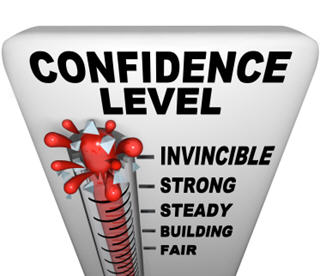
June 21, 2010—One thing most researchers agree on is that children need to be taught a healthy view of their place in the world: their sense of self. But what does that mean?
“Armies of American teachers, along with American parents, are straining to bolster children’s self-esteem,” says psychologist Martin Seligman. “That sounds innocuous enough, but the way they do it often erodes children’s sense of worth. By emphasizing how a child feels, at the expense of what the child does—mastery, persistence, overcoming frustration and boredom, and meeting challenge—parents and teachers are making this generation of children more vulnerable to depression.”
(Full story . . . )
September 21, 2010—Of the responsibilities parents tacitly accept when they bring a child into the world, perhaps the most important is teaching how to regulate thoughts, emotions and behavior.
Children who reach adolescence without developing this ability are more likely to fail academically, exhibit aggressive behavior, abuse substances, engage in high-risk sexual behavior and—as a result of any or all of these—generally experience negative life events. Unfortunately, many parents who struggle in this area themselves are ill-equipped to pass these skills down. Yet some researchers will go so far as to suggest that most if not all major problems that plague individuals of all ages in our society, including a number of health problems and mental issues, can be traced in some way to an inability to appropriately control aspects of the self. (Full story . . . )
June 21, 2012—What makes the difference between kids who are at risk for lifelong mental-health and behavioral problems and those who seem able to deal with whatever life throws at them as they mature? Experts tell us it’s a matter of gaining certain skills or “competencies” in childhood that serve our well-being for the rest of our lives: decision-making skills, self-control, a healthy self-view, a moral system of belief—and something called “prosocial connectedness.”
(Full story . . . )
December 21, 2012—Children around the world commonly use counting rhymes to decide who will be their teammates, which chocolate they will eat, or who among their siblings gets to push the elevator or lift button. But inevitably the decisions children face will become a bit too complicated for counting rhymes. Choosing homework over video games can mean the difference between good grades and bad; choosing one friend over another could mean the difference between being exposed to risky behaviors or mind-expanding, positive experiences. In fact, just about every aspect of our children’s well-being depends on how adept they become at making wise decisions.
By the time we are parents, we understand that the consequences of a single bad choice can reverberate for years, so we want to help our children become competent decision makers. But what skills are required, and how do parents instill them?
(Full story . . . )
April 15, 2013—If you had to compose a list of skills children need in order to develop into healthy, well-adjusted adults, what would it include? You might think of any number of important attributes, but most would probably fit within the five broad categories identified by researchers Nancy G. Guerra and Catherine P. Bradshaw in their 2008 study. In this series we have covered all but the last of these “core competencies for positive youth development,” which include a positive sense of self, self-control, good decision-making skills, and prosocial connectedness. The final competency, according to Guerra and Bradshaw, is a moral system of belief—or what some have referred to as "moral intelligence."
(Full story . . . )
Bye-Bye Boot Camp: Positive Parenting for Challenging Kids
April 1, 2014—Having children is not a prerequisite for having strong opinions about childrearing, so it’s not remarkable that when we do have children, we can be a bit defensive about our parenting style. This is true even when it seems to be working well; but what if our child’s behavior seems particularly challenging? Because we take our responsibility seriously, we may focus on who or what is to blame, rather than on what we can do to improve the situation. We may even wonder whether it can be improved. Is a noncompliant toddler doomed to become a challenging adolescent? Worse, if we have a defiant teenager—one who refuses to comply with requests or follow rules of conduct—do we have any real chance of producing the result we want for him or her?
(Full story . . . )

